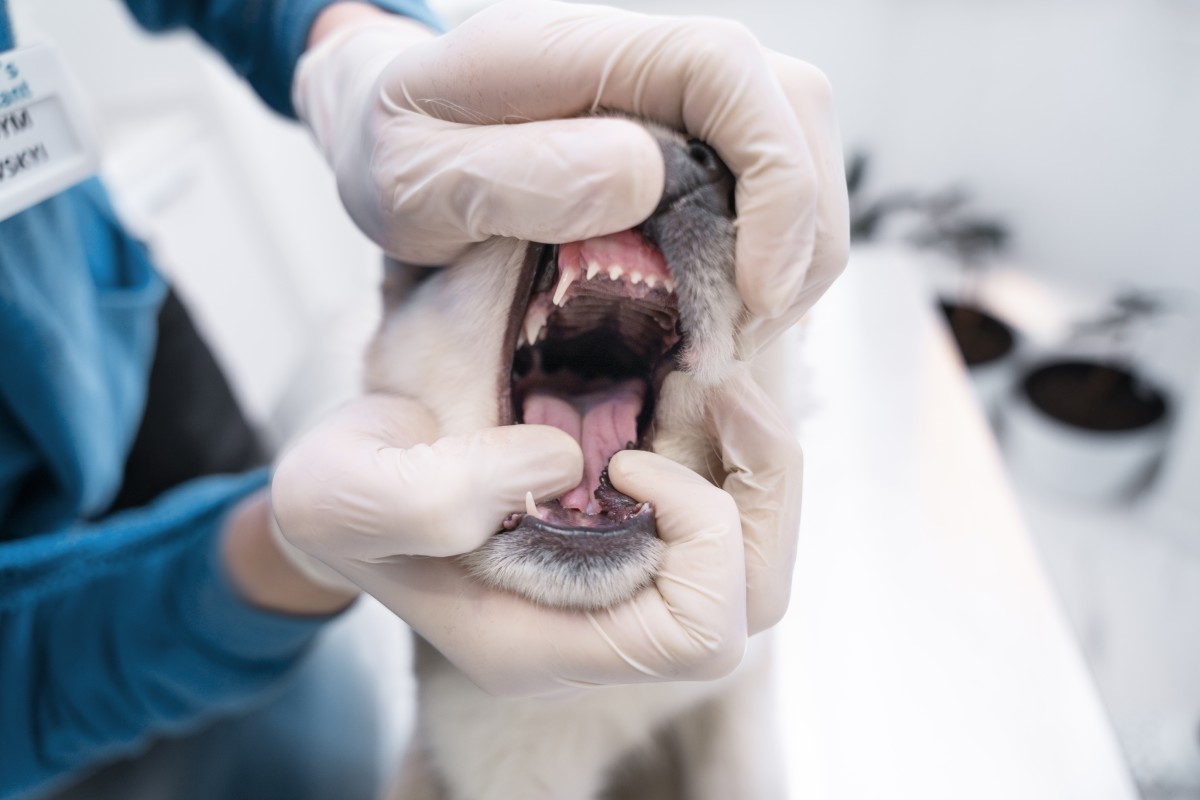Services
Dental Care
For most people, pets are part of the family, and many refer to them as their fur babies. They know how important it is to take them to their veterinarian on a regular basis for shots and checkups, but they may not realize how vital it is to keep up with pet dental health as well.
Why Pet Dental is Important for Your Pet
According to the American Animal Hospital Association Dental disease is often present in pets as young as three years old and can lead to chronic pain. Much of this can be prevented or delayed by paying attention to your pet’s dental health by brushing their teeth with pet toothpaste and offering dental chews. These precautions are not enough. Regardless of precautions periodontal disease in pets is extremely common.
Ultimately, it is important that your pet’s dental care regimen include your veterinarian as well. At Lone Tree Animal Care Center in Omaha, NE, we keep a close eye on your pet’s dental health during their regular well-pet visits and will help you keep track of your pet’s dental health.
Your Vet’s Role in Your Pet’s Dental Health
In most cases, pets should have a yearly pet dental exam. These appointments can look deeper into what is going on with your pet’s dental and overall health. By having a dental appointment under sedation, your veterinarian can reach plaque and bacteria below the gum line that may dig deeper and affect vital organs such as the heart and kidneys.
We are careful to assure that your pet stays safe during any procedure that may be necessary from plaque removal to tooth extraction. In an instance where we need to look deeper into a dental issue, we have x rays available so we can identify the best course of action. We also make sure you have the information you need to take care of your pet afterward and can prescribe any pain medication your pet may need to feel like themselves again. Some types of pet diets are especially geared toward dental health and we can let you know whether your pet needs any special considerations in order to thrive.
Call Lone Tree Animal Care Center Today
Lone Tree Animal Care Center in Omaha, NE is easy to get to whether you are in Winter’s Quarters, Old Market, or the Blackstone District. If your pet is due for a pet dental appointment contact us at 402-389-3356 today.
Dental Care FAQs
Pet dental care is essential for the health of your pet. Prevention is always better than treatment when it comes to dental health, and there are many things you can do as a pet owner to promote good oral hygiene. At Lone Tree Animal Care Center, we have been providing pet owners in Omaha, NE with pet dental care services for many years. We primarily serve Omaha and Council Bluffs. Following are the answers to several questions our veterinarian frequently receives regarding pet dental care.
How Common Are Pet Dental Issues?
More than 70% of cats and dogs over the age of five suffer from periodontal disease. This dental disease means that your pet has lost the supporting structures of its teeth. This is a very uncomfortable dental disease that can cause loose teeth, allow bacteria into the bloodstream, and cause heart, liver, and kidney damage.
Can Pets Suffer Dental Issues Even if They Show No Signs of Pain?
Just because your pet is not showing any obvious signs of being in pain doesn’t mean that he or she is not suffering from a dental condition. When it comes to sensing pain, cats and dogs have the same basic anatomy as humans. Since many dental conditions that cause pain gradually worsen, most pet owners may assume that their pet is just acting weird due to being grumpy, etc. When the condition that is causing pain is removed, the improvement is very obvious. Following treatments, many pet owners have noted that their pets have been acting “younger.”
How Do I Know My Pet Needs Dental Care?
If you notice any of the following, contact our veterinarian:
- A red stripe along your pet’s gumline
- A change in the way your pet chews
- An unpleasant odor in your pet’s mouth
- Cannot see your pet’s teeth due to the accumulation of calculus
- Notice broken or discolored teeth, a decrease in appetite, difficulty swallowing, or an enlargement of the tissues in the mouth
These signs indicate a dental problem.
How Often Should My Pet Have His Teeth Cleaned?
Certain factors may affect how often pet dental care is needed, such as pre-existing diseases, diet, and individual habits. The typical time frame for pets to have their teeth cleaned is every six months to a year.
